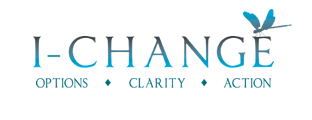
I attended a seminar run by the Institute of Business Ethics the other day, where the issue of ethics in modern business was explored. Modern business people are now used to talking about their business values, things such as Quality, Excellence, Teamwork etc; however, perhaps less discussed are Ethical Values such as :-
Business values tell all employees what is important, and Ethical values tell them how to do business. The message about values goes beyond employees and is a commitment to all stakeholders such as customers, suppliers the community and shareholders as well.
We only have to think of the Enron debacle and the fallout from that to realise that failure to address ethical behaviour effectively can ruin more than one company. Click here to hear just how bad it can get!
Here is a variation on the ‘two cows’ theme:-
ENRON Venture Capitalism: You have two cows. You sell three of them to your publicly listed company, using letters of credit opened by your brother-in-law at the bank, then execute a debt-equity swap with an associated general offer so that you get all four cows back, with a tax exemption for five cows. The milk rights of the six cows are transferred, via an intermediary, to a Cayman Islands company secretly owned by the majority shareholder, who sells the rights to all seven cows back to your listed company. The annual report says the company owns eight cows, with an option on one more.
 So getting it wrong can damage your business… think of how people feel about some of the big oil companies that have contribute to huge oil spills (remember the Exxon Vladez?).
So getting it wrong can damage your business… think of how people feel about some of the big oil companies that have contribute to huge oil spills (remember the Exxon Vladez?).
If you are in a large organisation you probably have a neat little folder telling you about your company’s ethical standards. Interestingly, Enron had one too; it was written by lawyers and thus incomprehensible to normal human beings. Also, their system of reward & review only paid bonuses to the top 25% of the staff, so anything that might impact your performance affected your prospects.
As long as your Ethics Guidelines is just one more binder on your bookshelf it will do little good. It has to become part of the corporate culture, part of how you do things, part of your organisations DNA. You need to have an open culture where these dilemmas can be discussed. In the real world, no matter what a little book says, there are shades of grey. How do you handle foreign customers, suppliers and politicians who have different cultural norms? Just which countries cultural norms should you be abiding by?
Here is a simple three part test that can help keep you from making a misjudgement:-
1. Transparency: Would I mind if others knew what I have done? Or perhaps, would my gran be proud of me if she knew this?
2. Effect: Who, if anyone does my decision/action harm? Remember all those stakeholder groups!
3. Fairness: Would my decision be considered fair by those affected?
An interesting and salient fact is that businesses who get their ethics right out perform those who don’t on 3 out of 4 measures and survive hard times better. This is an issue that affects your bottom line! These days with a competitive job market, people don’t stay with employers that make them feel bad about themselves and their actions.. they walk. Can you afford ethics? Can you afford not to have them!
Albert Schweitzer
For those of those of you who want to move into action here is some guidance on good and not so good practice in this area.
|
Institute of Business Ethics Guide to making Codes of Ethics Effective |
|
|
Good Practice |
Poor Practice |
|
Root the code in core ethical values |
Pinning the code to the notice board |
|
Give a copy to all staff |
Failing to obtain board commitment to the code |
|
Provide a way to report breaches in a confidential manner |
Leaving responsibility for its effectiveness to HR or any other department |
|
Include ethical issues in corporate training programmes |
Failing to find out what concerns the staff at different levels |
|
Set up a board committee to monitor the effectiveness of the code |
Not to feature the code in induction training and management development activities |
|
Report on the code's use in the annual report |
Not to have a procedure for revising the code regularly |
|
Make conformity to the code part of a contract of employment |
Make exceptions to the code's application |
|
Make the code available in the language of those staff located overseas |
Fail to follow up breaches of the code's standards |
|
Make copies of the code available to business partners, including suppliers |
Fail to set a good example by corporate leaders |
|
Review code in light of changing business challenges |
Treat the code as confidential or a purely internal document |
|
Make sure senior staff "Walk the Talk" |
Make it difficult for staff to have direct access to the code |
Testimonials:
Following the course at Henley, Richard has supported and coached me through the assessments and also through the period of uncertainty and change within the business. Richards's comfortable and relaxed style helped me work through new evaluation techniques and models. - General Manager - Estates National Grid Wireless
click here for more testimonials

What's New?
Article: Management and Change Management
Blog: We've been Trumped... or Brexit pt II
Everyone thinks of changing the world, but no one thinks of changing himself. - Leo Tolstoy